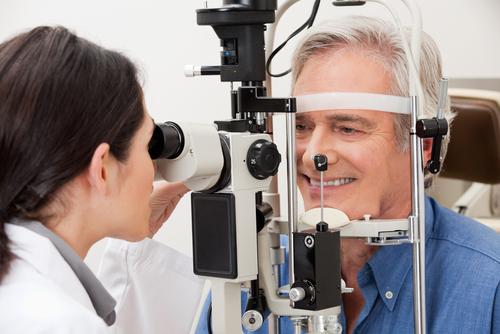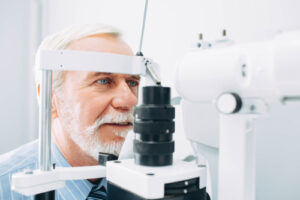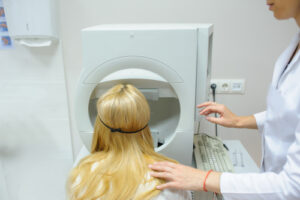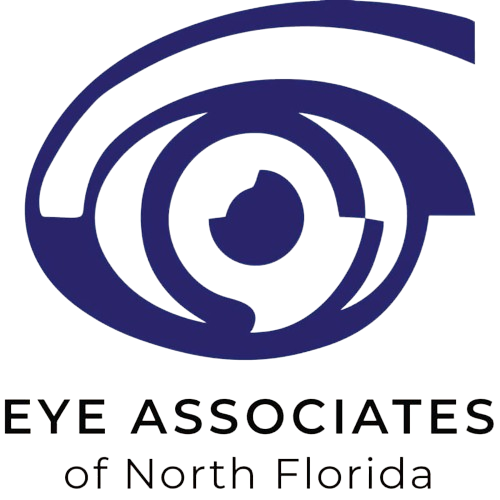How Do Eye Doctors Diagnose Glaucoma?

As the second leading cause of blindness, glaucoma is a serious eye condition, but how can you know if you have it? Millions of Americans are living with glaucoma.
However, some people are not even aware that they have it. Without diagnosis and treatment, it can cause severe and permanent vision damage.
The early detection of glaucoma could mean saving your vision. Keep reading to find out how eye doctors diagnose glaucoma!
What Is Glaucoma?
Most people have heard of glaucoma, but not everyone fully understands the condition. Glaucoma is an eye condition that damages the optic nerve.

This structure contains over a million nerve fibers. It delivers visual information from the retina to the brain so that you can see images.
In most cases, glaucoma is caused by an abnormally high amount of pressure in the eye. This pressure is called intraocular pressure, or IOP.
There are three primary types of glaucoma: open-angle, angle-closure, and low-tension. Open-angle and angle-closure glaucoma are the most common.
Open-Angle Glaucoma
With open-angle glaucoma, pressure results when fluid is unable to drain from the eye. This occurs due to a drainage problem in the trabecular meshwork.
This area of tissue is located near the edge of the cornea. It channels fluid out of the eye.
Angle-Closure Glaucoma
Angle-closure glaucoma is less common than the open-angle form. In this case, there is a sudden blockage in the drainage system.
A build-up of pressure can occur quickly. When this happens, it is known as an acute angle-closure glaucoma attack.
Low-Tension Glaucoma
The exact nature of low-tension glaucoma is not yet fully understood. With this form, eye pressure remains normal, but the optic nerve still becomes damaged.
Heightened sensitivity of the optic nerve or a decreased blood supply to it may be the cause.
Although rarer, other forms of glaucoma include pigmentary glaucoma, pseudoexfoliative glaucoma, traumatic glaucoma, and neovascular glaucoma.
Risk Factors for Glaucoma
Some factors are associated with an increased risk of developing glaucoma. These include:
- High eye pressure
- Being 40 or older
- Being African American or Hispanic
- A family history of glaucoma
- An eye injury
- High blood pressure
- Diabetes
- Corticosteroid medication
What Are the Symptoms of Glaucoma?
Glaucoma progresses slowly. In the early stages, there can be few to no noticeable symptoms.
This means that it is possible to have glaucoma and not notice any symptoms at all. The symptoms of glaucoma vary, depending on the type you have.

Open-angle glaucoma first affects your peripheral or side vision. This is because the nerve fibers that are responsible for this area of your vision are typically damaged first.
When left untreated, vision loss expands towards the center, causing tunnel vision. Eventually, blindness can occur.
With angle-closure glaucoma, damage to your vision can occur much more rapidly. Your vision can become blurry fast, and you can experience halos around light sources.
In addition to visual changes, patients can experience symptoms like a severe headache and eye pain, nausea or vomiting, and eye redness. Closed-angle glaucoma requires immediate medical attention.
Diagnosing Glaucoma
You can’t treat glaucoma if you don’t know you have it. As many as half of glaucoma patients are not aware that they have this disease.
By the time you do notice symptoms, permanent eye damage has likely already occurred. Without diagnosis and treatment, you risk serious, permanent damage to your vision.
This is why eye exams are essential. An eye exam is the only way to diagnose glaucoma.
During a routine exam, your eye doctor will check your eyes for signs of this condition. As with many conditions, early diagnosis and treatment are critical.
The earlier your eye doctor is able to intervene, the better the outcome will be. In order to diagnose glaucoma, a doctor will use certain tests.

Dilated Eye Exam
A dilated eye exam is important for detecting signs of multiple diseases, including glaucoma. After dilating your pupil, your doctor will shine a light into the back of your eye.
This allows them to evaluate different structures in your eye, including the optic nerve. They will examine the area between your cornea and iris, known as the angle.
Corneal Thickness
The thickness of your corneas can affect your risk of developing glaucoma. So, your doctor may measure the thickness of your corneas.
Eye Pressure
Since increased eye pressure is a common cause of glaucoma, your doctor may test whether yours is elevated. After numbing your eye with drops, they measure the pressure of your eye by gently touching your cornea with a special instrument.
Retina and Optic Nerve Imaging
Images of your retina and optic nerve may be taken as well. An optical coherence tomography machine may be used to take pictures.

This is another way of checking the condition of the optic nerve.
Visual Field Test
Finally, your doctor may conduct a visual field test to check whether your vision is being impacted, and to what degree. This type of test can show the rate at which the glaucoma is progressing.
Once your eye dcotor diagnoses glaucoma, they are able to choose from several effective treatment methods that can prevent it from seriously affecting your vision.
Regular eye exams are vital to the preservation of your vision and eye health.







